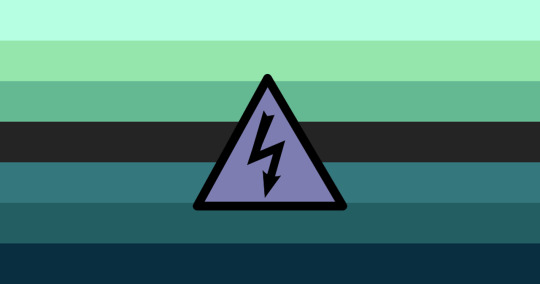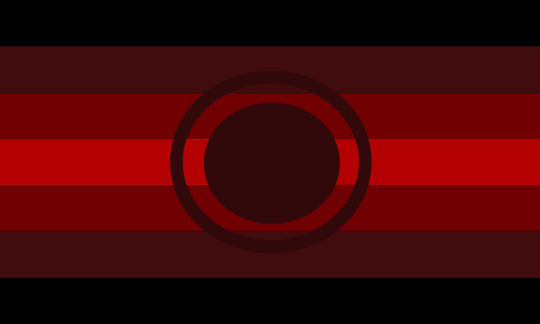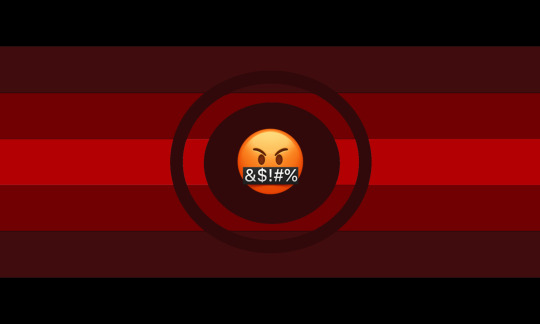#disordered system
Text
If your trauma caused you to split, then you were traumatized 'enough' to be traumagenic/have DID, OSDD or what have you. Trauma isn't always from a parent: it can be peer bullying/shunning, sibling abuse, near death experiences, experiencing death of a loved one or even a stranger, medical trauma, etc.
I will go one step further and say that if your system experience isn't purely traumagenic, and you're pushed out of supposed safe spaces because of it, don't feel pressured to change the labels that feel right for y'all. I have half a heart to not post this in traumagenic tags, because SO MANY traumagenic systems are anti endo it seems. But mixed origin systems exist, endo systems exist, non-disordered traumagenic systems exist, etc and plurality is such a large umbrella of different experiences (even yours!).
You're doing nothing wrong by existing.
#plural positivity#system positivity#osdd#did#traumagenic#endo safe#mixed origin safe#sysblr#disordered system#nondisordered system#p-did#c-did#hc-did
169 notes
·
View notes
Text
12 questions is the most I could do, so sorry some experiences are grouped together! If you're researched self DX, please feel free to contribute to this poll as well. We would have made OSDD1a its own category if we had space 😔 This is mostly a curiosity on our part, since a lot of the criteria are based on amnesia but we hear many different experiences throughout the community.
These are meant to be as broad categories as we could manage, but if you have an experience that doesn't fit any of this due to the limited choices, please feel free to reblog or comment!
(reblogs appreciated for visibility!)
#did osdd#disordered system#did system#osdd system#osddid#plural community#plural system#traumagenic system#traumaendo#p-did#pdid system#pdid#pluralgang#amnesia#memory loss#actually plural#prism
227 notes
·
View notes
Text
Is this plural joy?
Is plural joy finding out a name that finally resonates? Is it talking for an hour about the system and it's history, listening to every word? Is plural joy talking seamlessly in conversation with picture and tangible emotion woven into word? Side by side and thought by thought with your sysmate. Is it typing because you know they need a record, even if internal communication is faster?
Is it being so excited your edges blur?
Is plural joy something that pervades every paralysis episode, shutdown, meltdown, flashback, and dissociative symptom?
Is it being unable to sleep at 12:33 in the morning because I have to write a fucking essay about how much I appreciate them? After they wrote me a beautiful poem with our hands and our heart?
Yes, it is.
#plural#plural gang#actually did#actually dissociative#dissociative#dissociative system#system#system positivity#disordered system#plural joy#endo safe#pro endo#other specified dissociative disorder#osdd positivity#osdd#plural positivity#river.txt
118 notes
·
View notes
Note
Plural culture is not knowing if you're a new headmate or just going through Character Development™️
-
#sometimes both#system culture is#endo safe#plural#plural system#plurality#actuallyplural#actuallymultiple#multiplicity#disordered system#neurodivergent
71 notes
·
View notes
Text
Non-disordered plurality vs. Endogenic plurality: what’s the difference?
(FAQ system edition)
What is plurality?
in its simplest form (it’s more complex then this, but this is at its simplest) the experience of multiple beings within one body. The most main stream form that gets talked about is DID, but there is many other forms of plurality. Within the mental health field, systems may also be diagnosed with OSDD-1, UDD, P-DID, (when it comes to labels for plurality at least, misdiagnosis is unfortunately very common as well) typically these get associated with traumagenic plurality, but this isn’t always the case since they are ultimately labels to help categorize plurality in a medical sense. Also not every system falls under these categories!
What’s endogenic plurality?
Endogenic plurality is typically a system who identifies that the system they are apart of was not formed from trauma. This isn’t always the case though! Systems can be Endogenic and traumagenic at the same time. Often times this gets called Multigenic, Mixed Origin, and/or Traumaendo. Also while some systems may identify as fully endogenic, this does not mean they don’t have trauma.
What’s traumagenic?
Traumagenic is a system formed from trauma, it is often associated with childhood trauma, but this isn’t always the case. Once again, traumagenic systems can be endogenic at the same time!
What’s “disordered plurality”?
All this term means is that the system in question deals with significant distress from plurality. This can be caused by amnesia, mental illness, society, not being used to being plural, and many, many other factors. Non-disordered means the person is not dealing with significant distress from the fact they are plural.
So what’s the difference?
Anyone can feel distress from being plural. A endogenic system may be considered a disordered system for many reasons, like maybe they are struggling to manage the fact they are plural along with depression, or they feel a lot of internalized shame and fear about it.
Non-disordered plurality just means the system is not in significant distress from being plural. This can range from a system functioning perfectly fine, to healing trauma, and healing amnesia barriers enough to function well.
Non-disordered plurality simply is functioning in a healthy manner with headmates, while endogenic plurality is referring to how the system originally formed. It’s something that will and does fluctuate overtime.
-Elliot
#did#pro endo#did osdd#did system#endo friendly#dissociative identity disorder#traumagenic system#actually plural#endo safe#endo system#pro endogenic#endogenic#non-disordered system#Disordered system#FAQ
35 notes
·
View notes
Text
All systems are welcome to interact!
#poll#system poll#system polls#plural poll#plural polls#pro endo#endo safe#endogenic#endogenic system#traumagenic#traumgenic system#traumaendo#traumaendo system#median system#mixed origin system#willowgenic#disordered plurality#disordered system#non-disordered plurality#non-disordered system#actually plural#plural system#pluralgang#plurality
26 notes
·
View notes
Text
A Message for Disordered Systems
A short break from our regular content to give you a message from our host to any Disordered System who is having issues believing that they are a system because of their disorder's rarity!

Remember you are valid <33
EDIT (9/24/22): I understand that I may have made a mistake with the numbers, but keep in mind this was just a little thing originally meant to make my friends feel better about themselves, and feel less alone. I didn't do in depth research, it was a few Google searches and reading a few websites. I just decided that this may make a few more people feel validated taking into account the target audience of this blog. I hope everybody had a nice day.
337 notes
·
View notes
Text
Endogenic Disordered Plural flag



A flag for disordered endogenic plurals! This includes:
Mixed origin disordered systems who are partially endogenic
Systems that formed before developing a system-forming disorder (such as systems who've been there since birth)
Disordered systems who no longer have headmates formed due to their disorder (eg. the only remaining headmates are created)
Disordered systems who never had traumagenic headmates because their system-forming disorder isn't trauma-exclusive
and many more experiences!
#pro endo#endogenic#plural#endogenic system#endo safe#plural community#system#did system#osdd#did#plural system#disordered system#non-disordered system#coining#flag coining#disordered endogenic#plural coining#system coining
268 notes
·
View notes
Text
Disordered Plurality
So this post has been a long time coming. We are a disordered system. We like the label “disordered,” as we feel it accurately describes our experience as a plural system with DID. We know not all systems like or want to use the term “disordered” to describe their plurality, even if their experiences align more or less with our own, and that’s totally fine! However, it doesn’t change the fact that this is language that our system benefits from. We’d like to talk a bit about what disordered plurality means to us.
TRIGGER WARNING: This post will discuss symptoms of DID and PTSD, along with brief mentions of trauma and abuse.
What does it mean to be disordered?
The Oxford Dictionary defines disordered as:
suffering from an illness or condition that disrupts normal physical or mental functions.
Our personal definition for disordered is:
causing distress, impairment, or difficulties functioning in day-to-day life.
In this way, we feel nearly anything has the capacity to be disordered in one way or another. If an aspect of someone’s life is troubling them significantly, making it more difficult for them to live their best life, or is regularly causing them pain, strife, or emotional turmoil, then we believe they have the right to call their experience with that aspect disordered.
What does disordered plurality look like?
For us, our plurality is disordered for these main reasons:
Amnesia/Dissociative Barriers
Our system is made up of parts, each holding on to separate memories from different periods of our life. Through therapy, we’ve made progress with getting in touch with each other, and some of us are able to interact fairly regularly. However, many of us are still cut off from each other. We have very little recollection of our childhood, and our memories of day-to-day life can be patchy and foggy due to different parts interacting with the world without being able to reliably share their memories with others.
Our amnesia makes it difficult for us to maintain relationships, hold a steady job, take proper care of ourselves, and remain emotionally and mentally stable. Our dissociative barriers make it challenging for us to effectively process trauma, care for scared/traumatized parts, and learn more about one another. These struggles with amnesia and dissociative barriers greatly contribute to our disordered experience.
Depersonalization/Derealization
Our struggles with DPDR have significantly impacted our system and how we function. We have difficulties staying grounded in daily life, and seriously struggle to determine what’s real and what isn’t, or if we’re even real at all. We often feel empty, foggy, hazy, and lost in life. We have trouble recognizing our friends and family, and even our own reflection. Our amnesia might make us forgetful, but our DPDR makes it quite difficult for us to care about the things we do remember. Depersonalization (feeling detached and disconnected from ourselves) and derealization (feeling detached and disconnected from the world around us) affect every member in our system, and have caused us in life to generally feel hopeless, listless, uncaring, and confused. We created an infographic to explain our experience with these symptoms in the past, which you can check out here.
Conflict
We’re not talking about the occasional disagreement here. Our system is constantly struggling with indecision, and it has had a major negative impact on our life. As different parts want different things for our future, it’s brought us to a standstill when it comes to positive progress in areas like a career or hobbies. Despite having an education, we cannot choose one thing for us to focus on as a career path. Due to many parts having interest in many different areas, we’ve never been able to choose one skill to hone, or one hobby to practice regularly. As a result, our life is extremely scatterbrained and surface level. We’re living in poverty due to our indecision regarding a career choice. We feel perpetually unfulfilled because our parts cannot agree on how to spend our time in a way that is positive and constructive.
We also have serious conflicts that can escalate due to our trauma history and our issues with emotional regulation. Some parts have grown to resent each other. Others wish physical violence on other alters or the system as a whole. We try to maintain a calm, focused, and positive presence on this blog, but the truth is, in our own mind it is hardly ever happy or tranquil. We are working on resolving these issues in therapy, but it is a work in progress.
Trauma
Our trauma history is intrinsically connected to and intertwined with our plurality. We likely would not be plural at all if it weren’t for the abuse we suffered from as a child. As such, our trauma greatly contributes to our disordered experience with plurality. For us, this means:
- our parts may have different, conflicting trauma responses
- our desire and abilities to work together are hindered by our trauma
- we gain new alters exclusively through scary, stressful, or traumatic experiences
- most parts still dissociate as a way to cope with overwhelming situations
- we have emotional parts who take on aspects of our abusers’ identities, and other parts who are constantly in distress
and more.
Do I have to have a dissociative disorder in order to have disordered plurality?
We highly doubt this! It is possible for any system, regardless of origin or trauma history, to be impaired or distressed by their plurality. We believe that it is up to the individual system to decide whether or not their experience should be considered disordered, nondisordered, or neither of these. We’ll never try to convince a system that their experience is aligned one way or another - that’s for each system to discover and learn on their own. We are, however, more than willing to provide resources and support as we’re able!
Hopefully this post is able to shed some light on disordered plurality, what it means to be a disordered system, and our personal experience as a disordered DID system. We’re happy to provide additional information or make clarifications if they’re needed. If you’ve made it this far, thanks so much for reading! Have a great day!

#multiplicity#plurality#pluralgang#actuallyplural#disordered system#disordered plurality#dissociative identity disorder#trauma#abuse#long post
22 notes
·
View notes
Text
Shoutout to DID systems who aren't anti endo.
Shoutout to disordered systems in general who don't think their experience is the only valid system experience.
#actually plural#sysblr#fuck sysmeds#non disordered system#disordered system#plural positivity#endo safe#systems of all origins welcome
242 notes
·
View notes
Text
Dropping "out of front" as a P-DID host (and, I imagine, a lot of non-disordered systems too, but I wouldn't know) feels less like disappearing or leaving for headspace or something, and more like... stepping back and falling half-asleep while the other person does things using the body. We have extremely bad adhd, so it's the only way I can rest and escape the constant barrage of my own thoughts. I don't lose consciousness completely, but instead of their awareness being filtered through me, it's the other way around, and by giving them control of the wheel, the brain focuses on their influence and sets mine "in the back". Being able to switch like this is the closest I'll likely ever get to being completely out front, due to the way our trauma manifests. It's taken a long time of practice to even get this far, and it's one of the most important things we've learnt for our internal privacy and teamwork.
This is why it's even more important to establish that it's generally considered rude to constantly ask for the host when interacting with other system members. Many systems aren't able to switch on command, but there are also systems that struggle to switch and are barely holding onto front, or systems that can switch on command but desire privacy and rest, or systems that could technically switch but it would cause their host great distress. A system does not need to switch for others to be comfortable. Yes, sometimes you had prior plans to attend to, but it's better to talk about what to do about this with whomever is in front at the time instead of just immediately asking for the host.
Being allowed to Not Front by others socially is a matter of privacy and respect, and the idea that the host should always be available plays into the host-centricism much of societal perception holds. If someone you're not used to is in front, there's a reason, no matter how small, so please consider both the feelings of the current fronter and the host before asking. Is the fronter comfortable with leaving front? Is the host comfortable with being in front? Is this really a circumstance where you'd need the host specifically, or are you just used to having them around? Treating all system members as equals goes a long way.
#plural community#disordered system#osddid#pluralgang#pdid#pluralpunk#did awareness#actually plural#uniquely plural#traumagenicinclusive#inclusive plurality
131 notes
·
View notes
Note
person a and system b have been friends for years. system b's early childhood trauma caused a dissociative disorder, while person b's trauma only became worse when they were in their late teens. write about person a's decision to form a willogenic system to cope with the trauma, and how they break the news to system b. does system b help them do it?
Submitted Prompt #132
#pluralgang#plural system#plurality#pluralprompt#prompt blog#prompt#plural plurals#submission#sunshinemink#disordered system#trauma#willogenic system#coming out#dissociative disorder
17 notes
·
View notes
Note
disordered system culture is telling your therapist "we aren't plural, we made it all up" then realizing what you just said
-
#love the “we”#felt that too. sometimes the self doubt is strong#system culture is#endo safe#plural#plural system#plurality#actuallyplural#actuallymultiple#multiplicity#disordered system#neurodivergent
69 notes
·
View notes
Text
Alter Role Flags
For disordered systems only
Persecutor


Protector


Host


idk if I really like the protector and host flags, but I do like my persecutor flag ^^
feel free to use my template to make your own!
Template

#persecutor#protector#host#disordered system#anti endo#system#system flags#alter flags#did alter#persecutor flag#host flag#protector flag#did flag#did flags
65 notes
·
View notes
Text
Disorderedflux/Partially Disordered
A plural term I haven't seen before so I decided to coin.
Disorderedflux or Partially Disordered: A system whose plurality is sometimes disordered and sometimes non-disordered, or somewhere in between the two. May be experienced as occasionally having amnesia, not all members dissociating, or some members viewing their system as a disorder and some not.
We consider ourselves partially disordered because typically we're non-disordered as a system, but when one of our other disorders acts up it can bring on symptoms of disordered plurality as well.

The flag was inspired by the traumaendo flag, and the meanings are similar. Pink for plural positivity, purple for being in multiple communities, blue for non-disordered plurality, black for other disorders that make plurality hard, red for disordered plurality and trauma, orange for confusion, and yellow for not feeling like you belong.
#plural term#plurality#system#system term#system flag#disorderedflux#disordered system#non disordered system#endo safe#pro endo
70 notes
·
View notes
Text
Note: this poll is just curiosity on our part and is not meant to "out" anyone or anything. Only answer if you feel comfortable doing so.
Additionally, for the purposes of this poll, anyone who calls themselves a protector and/or persecutor would indeed count as a protector and/or persecutor, regardless of how they line up with "traditional" protector/persecutor roles.
All systems are welcome to interact!
We ourselves have both! :)
#poll#system poll#system polls#plural poll#plural polls#pro endo#endo safe#endo friendly#endogenic#endogenic system#traumagenic#traumagenic system#traumaendo#traumaendo system#median system#mixed origin system#willogenic#disordered plurality#disordered system#non-disordered plurality#non-disordered system#actually plural#plural system#pluralgang
10 notes
·
View notes